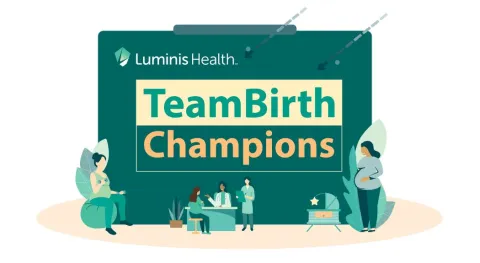There is no shortage of surprising new health studies. But how do you know which are worth your attention? When it comes to nutrition, it’s easy to get caught up in the hype. Let’s look at which headlines to heed or ignore:
“Celery juice is the new diet.”
The latest internet sensation promotes celery juice as a weight loss and digestion remedy, attesting that it can even contribute to reducing inflammation and preventing cancer.
There is no evidence that celery juice helps with weight loss, especially with the juicing process stripping away the fiber and feeling of fullness. There is also no evidence it improves digestion. When it comes to cancer prevention, studies show that certain types of fruits and vegetables either protect against certain cancers or have components that protect against cancer. However, there is no specific research on celery juice and this benefit. The whole celery has a flavonoid, which shows some anticancer effects.
Bottom line: Eat the whole celery for its anti-inflammatory properties that promote the health of gut lining and may help regulate digestion. Like anything else, celery juice is not a cure-all and drinking it will not eliminate other unhealthy eating habits.
“Dark chocolate relieves stress.”
Two studies revealed that dark chocolate-influenced gene activity of participants, increased anti-inflammatory agents and increased infection-fighting cells. The studies also suggest chocolate could positively affect brain function. However, the studies never measured stress, inflammation, mood, memory or immunity.
Bottom line: Presently, a large clinical trial is testing a supplement with cocoa flavanols on heart disease, stroke and memory. Even if the results of the study show that cocoa can help, you would have to eat 600 calories worth of dark chocolate a day to receive the therapeutic dose and reap the benefits.
“Carbohydrates fuel cancer.”
This idea tends to resurface from time to time, hinting that sugar feeds cancer. There is evidence, in fact, that higher insulin levels occur because of high sugar intake along with extra weight around the waist. However, the current thought is that insulin itself can get a tumor started. Evidence shows that people with high insulin levels have a higher risk of breast and colorectal cancer.
Bottom line: Cut back on added sugar but do not count on that to prevent or halt the spread of cancer.
“Your liver needs cleansing.”
The liver is the workhorse organ for blood cleansing, blood cell making and bile production – it does not need your help. There is no validity to claims that we need to rid our livers of toxins.
Bottom line: Our organs cleanse our systems of unhealthy substrates without wasting your money on ever-changing potions.
“Beans and nightshade vegetables are toxic.”
It appears that lectin (a type of protein found in beans and nightshade vegetables that can bind to sugar) is the new gluten. Lectin foods are well tolerated by most people. They are not ‘anti-nutrients’ but, in fact, deliver a host of nutrients, fiber and health benefits.
Bottom line: Lectin foods are mostly denatured with cooking and we have antibodies that deal with them. While some people do not tolerate these foods, telling everyone to avoid them is irresponsible.
If you are looking for credible nutrition information, it can be hard to find in a sea of conflicting information. It can be frustrating and confusing.
Here are some red flags to look for: A story that appeals to your emotion — especially through fear — also twisted science, no science or only anecdotes. Keep in mind that good science evolves slowly. Pay close attention to how your body reacts to certain foods and diets, and do what works best for you.
Authors

Ann Caldwell and Maureen Shackelford are nutritionists and registered dietitians at Anne Arundel Medical Center. To reach them, call 443-481-5555.





